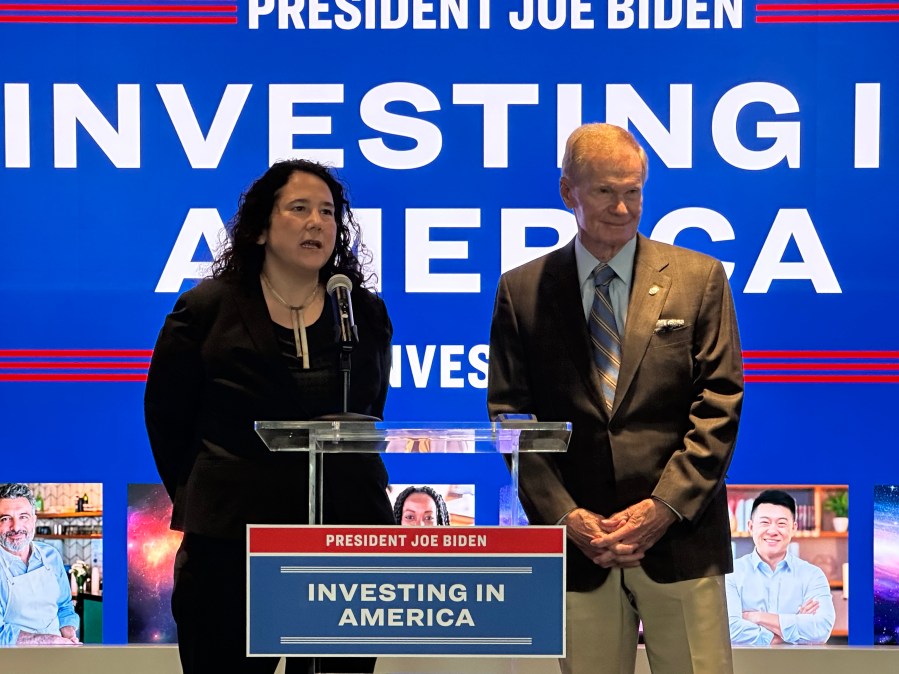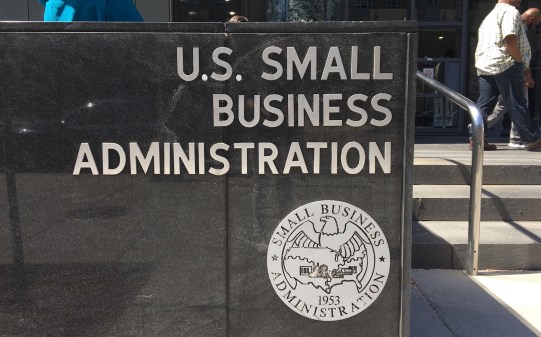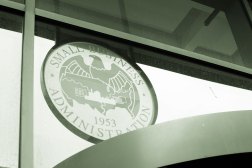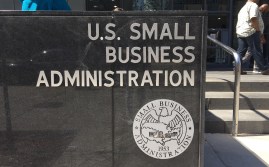Small business government contracting hits record high of $163B, SBA says

The federal government awarded $162.9 billion in contracts with small businesses in fiscal year 2022, exceeding its goal for working with small vendors and setting a record high, the Small Business Administration said.
The figure represents a 5.6% year-over-year increase in the volume of small business contract awards made by the U.S. government, up from a total of $154.2 billion during fiscal year 2021.
Over a quarter of federal government contract dollars — 26.5% — were awarded to small businesses in the last fiscal year, SBA Administrator Isabella Casillas Guzman said Tuesday at an event hosted at NASA’s Washington headquarters. The Biden administration’s goal was 23%.
Guzman said the federal government overall received an “A” on the SBA’s scorecard for work with small businesses for the last fiscal year. A total of ten federal agencies received an “A+” for their work with small businesses.
Guzman highlighted NASA at the Tuesday event, praising the agency for working “hand-in-hand” with small businesses to ensure access to contract vehicles. The agency received an “A” for fiscal year 2022.
Pam Melroy, NASA’s deputy administrator, said the agency invested $3.6 billion in 1,700 small businesses exceeding its own goal. Small businesses made up 18.4% of NASA’s contracts in fiscal year 2022, Melroy said. The agency’s goal was 15.75%.
“That’s real money. That is real contribution to our mission, and our mission is pretty exciting because we’re working to go back to the moon,” Melroy said. “Not this time just to visit, but to live and to create the ability for humans to have a sustained presence throughout the solar system for science and exploration.”
Twenty-five small businesses contributed to the work that went into the Mars Perseverance rover, Melroy said. Small businesses worked on the rover’s robotic arm and the blades of the Ingenuity helicopter that works alongside Perseverance, she said.
NASA also partnered with 491 small businesses in creating the James Webb Telescope, Melroy said. That work included solar cells, batteries, thruster vales, and the sun shield that allows the telescope to look into deep space, which Melory called “probably one of the most significant technical achievements of the James Webb Space Telescope.”
While government-wide contracting for socioeconomic categories like small disadvantaged business and service-disabled veteran-owned small business exceeded goals, historically underutilized business zone (HUBZone) small business and women-owned small business (WOSB) were below targets, according to an SBA release Tuesday.
HUBZone small businesses were awarded a record $16.3 billion, despite not meeting the goal of making up 3% of total eligible dollars, SBA said.
Meanwhile, women-owned small businesses made up 4.6% of the fiscal year 2022 eligible dollars, which was below the administration’s goal of 5%. The total amount awarded to those contracts did increase by about $1.9 billion from the previous year, however.
SBA said it “remains dedicated to collaborating with contracting agencies, actively pursuing future changes to achieve the 5% WOSB goal.”
Only two of the 24 CFO Act agencies received below a score of “B.” The Department of Health and Human Services received a “C” and the Department of Veteran’s Affairs received a “D.”
Sam Le, director for policy planning and liaison at the SBA, said in an interview with FedScoop that NASA does particularly well with its small business subcontracting.
“NASA buys things that are sometimes difficult for a small business to provide on its own,” Le said. “They’re buying rockets and complex research and development, but despite some of those requirements, NASA’s still able to meet its small business goals and particularly push on the prime contractor to use small businesses at the subcontracting level.”
Editor’s note, 7/18/23: This story was updated to include further details of other agencies’ scorecard performance and comment from Sam Le.




